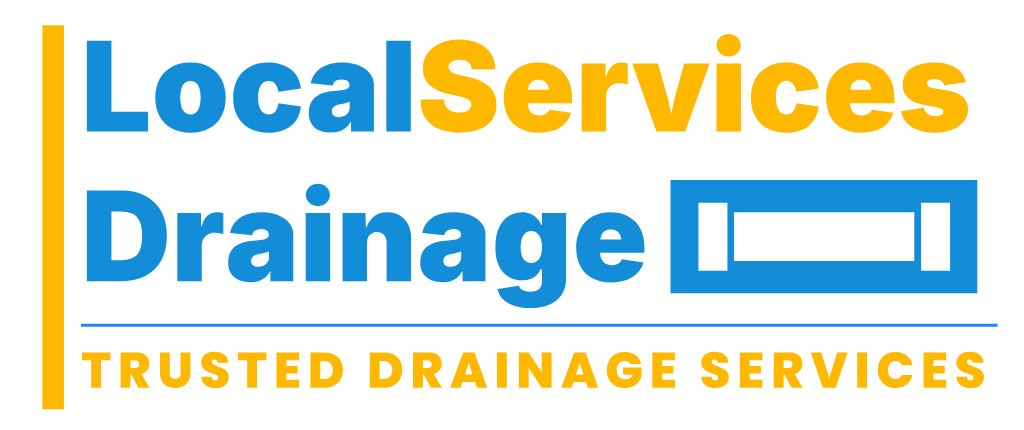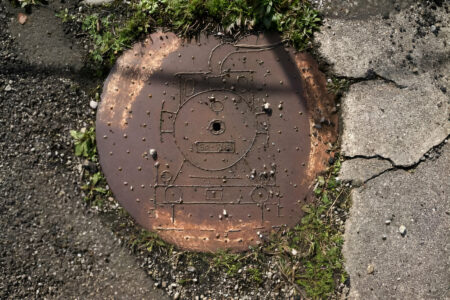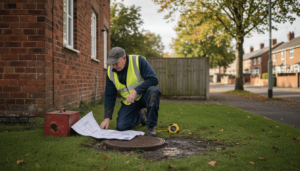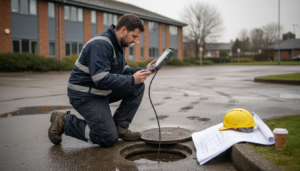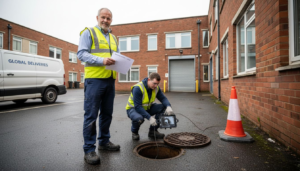Outside drains play a crucial role in keeping our properties free from excess water, but they can become a real nuisance when blocked. Imagine stepping into your yard only to find it flooded because the drain is clogged. Sounds frustrating, right? This article is here to help you understand everything about outside drain unblockers, from DIY methods to knowing when to call a professional.
Understanding Outside Drains
What are Outside Drains?
Outside drains are designed to carry away rainwater and other wastewater from your property. These drains prevent flooding by diverting water away from the foundation of your home. They are essential for maintaining a dry and safe environment around your house.
Common Causes of Blockages
Several factors can cause blockages in outside drains. Leaves, dirt, and debris are common culprits. Over time, these materials accumulate and obstruct the flow of water. Other causes include grease build-up from kitchen waste and roots from nearby trees infiltrating the pipes.
Signs Your Outside Drain is Blocked
Slow Drainage
One of the first signs of a blocked outside drain is slow drainage. If water takes longer than usual to disappear, it’s a clear indication of a blockage.
Unpleasant Odors
A blocked drain often emits foul odors. These smells arise from stagnant water and decomposing debris trapped in the drain.
Water Pooling
If you notice water pooling around the drain or in other areas of your yard, it’s a strong sign that the drain is blocked and needs attention.
DIY Methods to Unblock Your Outside Drain
Tools You’ll Need
Plunger
A plunger can be very effective in dislodging minor blockages. It works by creating a vacuum that pushes the blockage through the pipe.
Drain Rods
Drain rods are long, flexible tools designed to reach and break up blockages deep within the drain.
Hose Pipe
A hose pipe can be used to flush out debris. High-pressure water can dislodge and move blockages.
Step-by-Step Guide
Safety First
Before starting, ensure you have protective gear like gloves and goggles. Drains can harbor harmful bacteria and debris that can cause injury.
Using a Plunger
- Place the plunger over the drain opening.
- Push down and pull up with force to create a vacuum.
- Repeat several times until the blockage dislodges.
Utilizing Drain Rods
- Insert the rod into the drain and push it gently.
- Rotate the rod clockwise to break up the blockage.
- Continue pushing and rotating until the water starts to drain.
Flushing with a Hose Pipe
- Insert the hose pipe into the drain.
- Turn on the water at high pressure.
- Move the hose around to ensure it reaches all areas of the drain.
When to Call a Professional
Recognizing Severe Blockages
If your DIY attempts fail, the blockage might be severe. Signs include persistent slow drainage, recurring blockages, and water backing up into your property.
Benefits of Professional Services
Professionals have specialized tools and expertise to handle severe blockages. They can quickly diagnose the problem and provide a lasting solution, saving you time and effort.
Preventative Measures
Regular Maintenance
Regularly cleaning your outside drains can prevent blockages. Remove leaves, dirt, and other debris that can accumulate over time.
Installing Drain Guards
Drain guards can catch debris before it enters the drain. They are an effective way to reduce the risk of blockages.
Proper Waste Disposal
Avoid disposing of grease and other non-degradable materials down the drain. Proper waste disposal can significantly reduce the likelihood of blockages.
Eco-Friendly Unblocking Solutions
Using Natural Enzymes
Natural enzymes can break down organic material without harming the environment. They are a safe and effective alternative to chemical drain cleaners.
Benefits of Eco-Friendly Solutions
Eco-friendly solutions are not only good for the environment but also safe for your pipes. They reduce the risk of damage and are gentle on the drainage system.
Understanding the Costs Involved
DIY Costs
The cost of unblocking a drain yourself is relatively low. You only need to invest in basic tools like a plunger, drain rods, and a hose pipe.
Professional Services Costs
Hiring a professional can be more expensive, but it ensures the job is done correctly. The cost will vary depending on the severity of the blockage and the service provider.
Choosing the Right Professional Service
What to Look for in a Service Provider
Look for a service provider with experience and positive reviews. Ensure they use modern equipment and offer guarantees for their work.
Checking Credentials and Reviews
Always check the credentials and reviews of a service provider. This will give you an idea of their reliability and the quality of their service.
FAQs
How often should I clean my outside drain? It’s advisable to clean your outside drain every few months to prevent blockages.
What are the most common causes of outside drain blockages? Common causes include leaves, dirt, grease build-up, and tree roots.
Can I use chemical drain cleaners on outside drains? While chemical cleaners can be effective, they can also damage pipes. Eco-friendly solutions are a safer alternative.
How do I know if I need a professional to unblock my drain? If DIY methods fail, the blockage recurs, or water backs up into your property, it’s time to call a professional.
Are eco-friendly unblocking methods effective? Yes, natural enzymes and eco-friendly solutions are effective and safe for your drainage system.
How do I stop my outside drain from clogging?
To stop your outside drain from clogging, it’s essential to practice regular maintenance. This includes routinely clearing away leaves, dirt, and other debris that can accumulate and cause blockages. Installing drain guards is a proactive measure to catch debris before it enters the drain, significantly reducing the risk of clogs. Additionally, being mindful of what you dispose of down the drain is crucial; avoid pouring grease, oils, and other non-degradable materials, as they can build up and obstruct the water flow.
Proper waste disposal practices also play a vital role in keeping your drains clear. Instead of washing kitchen waste or garden debris down the drain, compost organic matter and dispose of other waste appropriately.
Conclusion!!
Unblocking an outside drain might seem daunting, but with the right tools and knowledge, it can be manageable. Regular maintenance and proper waste disposal are key to preventing blockages. However, for severe issues, don’t hesitate to call a professional. Keep your drains clear, and your property will remain safe and dry.
